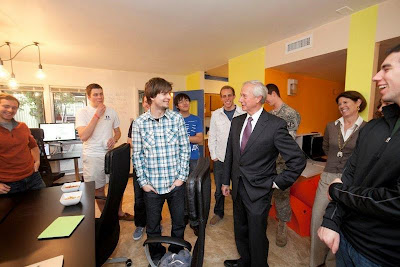I'm 36 years old and would not trade my experiences for anything. I do however want my children to take a different path than I did. I want them to align their passions, profit, and purpose faster than I did. When I was choosing a career in college I believe I remember someone saying, "Go into computers because you can get a job there." So I did and thought I reached my goal when I began a career at IBM. The dream was short lived as I spent many hours in a factory type environment where I basically reviewed online forms all day to see if all the blanks were filled in.
Now I've finally realized that I'm going to solve education problems after 15 years of wandering in the wilderness. Now I believe I can help my children get to this point faster through things like Gap Years, Missionary Service, Military Service, Time Away From School, etc. I see many young people itching to go to college and hurry to get out so they can begin their career. My advice to them, "Slow Down!" Your investment in a gap year or year off will deliver at least 10x returns since the ability to change careers is sometimes difficult once you start that investment banking job right out of Duke.

Where does Dan Kimberg fit in here? For those of you who don't know him, he's an amazing guy who created
StudentU right out of college (or a short time after college). His time floundering to find his alignment of purpose, passions, and profits seems to have been short. (By the way, one definition of profits is the ability to earn a decent living since I know he is not paying himself big bucks.) Unlinke, my 15 year journey of pivoting to find my purpose, Dan immediately began his mission after college.
Let us all challenge the traditional 16 year plan (12 years of elementary, middle, high school + 4 years of college) and better understand that we have not reached our end goal if we simply focus on graduating more individuals from college.














